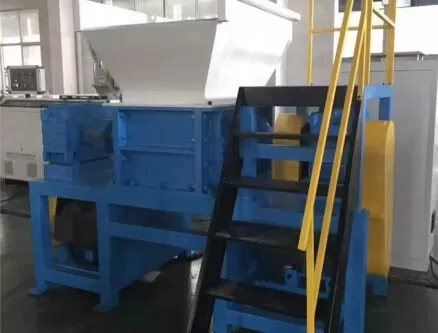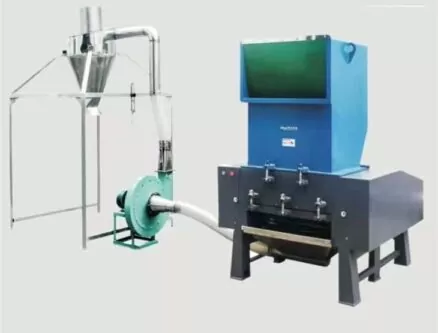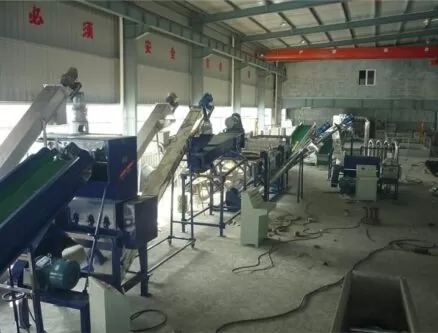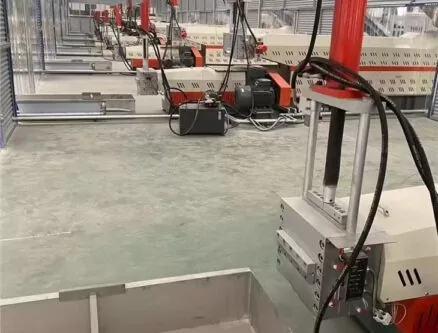You’re ready to dive into the plastic recycling business, but there’s one big, ugly roadblock — finding a reliable machine manufacturer in China. You’ve probably heard horror stories: rusty machines, shady suppliers, and worse, fake factories. I’ve been there. And I know the pain of wasting time and money. So let’s fix that. Today.
You can find high-quality plastic recycling machine manufacturers in China by checking certifications, visiting factories (virtually or in person), comparing material specs, and asking for client references. Stick with established brands in coastal industrial zones, and avoid deals that sound too good to be true.
This is the kind of article I wish someone had handed me when I started Amige. You’ll thank me later.

What makes a “good quality” plastic recycling machine in the first place?
Let’s clear this up before we even talk about suppliers.
A good plastic recycling machine isn’t just shiny and new. It must have high throughput, energy efficiency, low noise, strong cutting power, and be easy to maintain. We’re talking industrial-grade materials, like SKD-11 blades, Siemens motors, and thick steel frames. If you hear “mild steel” or “local motor,” run.
Look for ISO9001 certification. It’s not just a fancy badge — it shows the manufacturer has a quality management system in place. And CE or UL marks are essential if you’re exporting to Europe or the U.S.
Where are the top manufacturing hubs in China?
Geography matters.
Most high-quality plastic recycling machine factories are in Zhangjiagang, Dongguan, Ningbo, and Suzhou. Why? These places have entire industrial ecosystems — suppliers, engineers, and service providers — built around machinery manufacturing.
Zhangjiagang, for example, is basically the Hollywood of plastic recycling machines. You throw a stone and hit five factories (not that I recommend doing that). Dongguan is another hotspot, known for precision and electronics integration.
Avoid inland or very rural manufacturers unless you already trust them. They may offer lower prices, but quality and service could be hit-or-miss.

How to spot a fake factory or low-quality supplier?
Now this is the juicy part.
The easiest red flag? If they only show you photos, not videos — or if all videos look suspiciously like they were filmed in someone else’s factory. Insist on a live video call. Ask to see the actual factory floor and machines in operation. Real factories smell like oil, not Photoshop.
Ask for company registration and tax ID. Then cross-check it on public platforms like the Chinese National Enterprise Credit Information Publicity System.
Also, beware of traders pretending to be manufacturers. They often mark up prices and know very little about actual production. The giveaway? They’ll dodge technical questions like “What’s the rotor diameter of your crusher?”
What questions should you ask the manufacturer?
Don’t just ask about price. That’s rookie behavior.
Ask about:
- What’s the thickness of the steel plate for the frame?
- Can I see the parts list and brand of motor/inverter/blades?
- Do you provide installation and training?
- What’s the daily capacity under continuous operation?
- Can I speak to one of your overseas clients?
A real manufacturer will love these questions. It shows you’re serious. A fake one will get nervous, defensive, or give you vague answers like “no problem” — which ironically usually is a problem.

Should you visit the factory in person?
If you can, yes.
There’s no better way to verify quality than seeing it with your own eyes. Shake the frame. Listen to the motor. Check the welding seams. Smell the hydraulic oil if you’re feeling adventurous (kidding… mostly).
But if flying isn’t an option, at least request a live demo via Zoom or WhatsApp. Ask them to show the same machine you’re planning to buy, processing real material — not some showroom dummy.
Also, hiring a third-party inspection company is worth every penny. They’ll audit the machine before shipment, so you’re not left with a surprise paperweight.
What about after-sales support and spare parts?
Here’s where the good ones stand out.
A reputable manufacturer won’t ghost you after the sale. They’ll have spare parts in stock, offer quick-shipping options, and provide video guides for maintenance. Some even assign you a technician contact on WeChat — which is gold when something breaks on a Sunday.
Ask what parts are consumables and how often you should replace them. If they say “Nothing needs replacing” — yeah right. Every machine needs maintenance. I tell my customers upfront about blade lifespan, bearing wear, and motor upkeep.
A factory that preps you for long-term success? That’s the one to bet on.
What’s a fair price for a high-quality machine?
Everyone wants a deal. But don’t fall for prices that seem too good to be true. Spoiler: they are.
A basic plastic crusher with SKD-11 blades and a Siemens motor will start from around USD 3,500–5,000. A full washing line? You’re looking at USD 60,000–150,000, depending on capacity and automation.
If someone offers the same thing for half the price, ask yourself — what did they cut? Usually: motor quality, steel thickness, blade material, or electrical safety.
Always compare specs line-by-line. And request a full proforma invoice — not just “total price.”

Bonus: What do I do at Amige that others don’t?
Since you asked — or maybe you didn’t, but I’ll tell you anyway — we at Amige don’t just sell machines. We sell confidence.
We manufacture every core part in-house. We test every machine under load before shipping. We label every wire for easier installation. And yes, we throw in a playlist to keep you company during startup (okay, that part’s just me being nice).
Most of our machines are shipped to clients in Southeast Asia, Africa, and South America, and we’ve never had one come back. Knock on wood.
Our motto? “Crush plastic, not your hopes.”
Conclusion
Finding a reliable plastic recycling machine manufacturer in China isn’t rocket science — but it does take homework. Go for experience, transparency, and proof of performance. Your future self (and your wallet) will thank you.
